In the maritime industry, safety is paramount. Ensuring the safety of crew members and vessels requires adherence to strict regulations, particularly when it comes to drug and alcohol testing. For employers regulated by the United States Coast Guard (USCG), compliance with these regulations is not just a legal requirement but also a crucial step in maintaining a safe working environment.
At Workplace Safety Screenings, we understand the complexities of USCG compliance and the importance of comprehensive drug and alcohol testing programs. In this article, we'll delve into the requirements set forth by the USCG and how our services can assist employers in meeting these obligations.
Medical Review Officer (MRO) Responsibilities
One key aspect of USCG compliance is the involvement of a Medical Review Officer (MRO) in the drug testing process. The MRO plays a vital role in verifying the accuracy of test results and ensuring that proper procedures are followed. Responsibilities of the MRO include:
- Verifying the accuracy of test results
- Confirming that positive results are legitimate and not due to administrative errors
- Conducting interviews with specimen donors when necessary
- Ensuring compliance with Coast Guard Return-To-Duty requirements
It's essential for marine employers to select an MRO who is qualified according to 49 CFR part 40. Our team at Workplace Safety Screenings can assist in connecting employers with qualified MROs who understand the unique requirements of the maritime industry.
Steps to Compliance for USCG Regulated Employers
Compliance with USCG regulations involves several steps, ranging from developing drug and alcohol policies to conducting regular testing. Here are the key steps that employers must take:
-
Drug and Alcohol Policy: Develop and implement a written policy that outlines drug and alcohol testing procedures. This policy must be signed by the vessel operator and prominently displayed on board the vessel.
-
Reports and Recordkeeping: Collect testing data and submit annual reports to the USCG by the specified deadline.
-
Employee Assistance Program (EAP): Establish an EAP and provide drug and alcohol awareness training for crew members and supervisors.
-
Pre-Employment Drug Testing: Conduct drug testing for all new crew members before they join the company.
-
Serious Marine Incident Drug Testing: Perform drug and alcohol testing following any serious marine incident as defined by the USCG.
-
Reasonable Cause Drug Testing: Test crew members who are suspected of drug use based on specific indicators.
-
Periodic Drug Testing: Require applicants for licenses or merchant mariner’s documents to undergo drug testing.
-
Random Drug Testing: Implement a random selection process for drug testing, ensuring that all crew members have an equal chance of being tested.
-
Crew-member Background Checks: Conduct background checks, including drug and alcohol testing information, for all applicants.
-
Refusals and Positive Tests: Follow appropriate procedures in the event of a positive test result or refusal to test.
How Workplace Safety Screenings Can Help
At Workplace Safety Screenings, we specialize in providing comprehensive drug and alcohol testing services tailored to the needs of maritime employers. From connecting employers with qualified MROs to assisting with policy development and training, we offer a range of solutions to ensure USCG compliance.
For immediate assistance and to learn more about our services, call us at 855-572-5577. Our team is dedicated to helping maritime employers maintain a safe and compliant workplace.

.png?width=500&height=500&name=Blue%20and%20White%20Classic%20Shield%20Financial%20with%20Star%20Logo%20Design%20(1).png)


